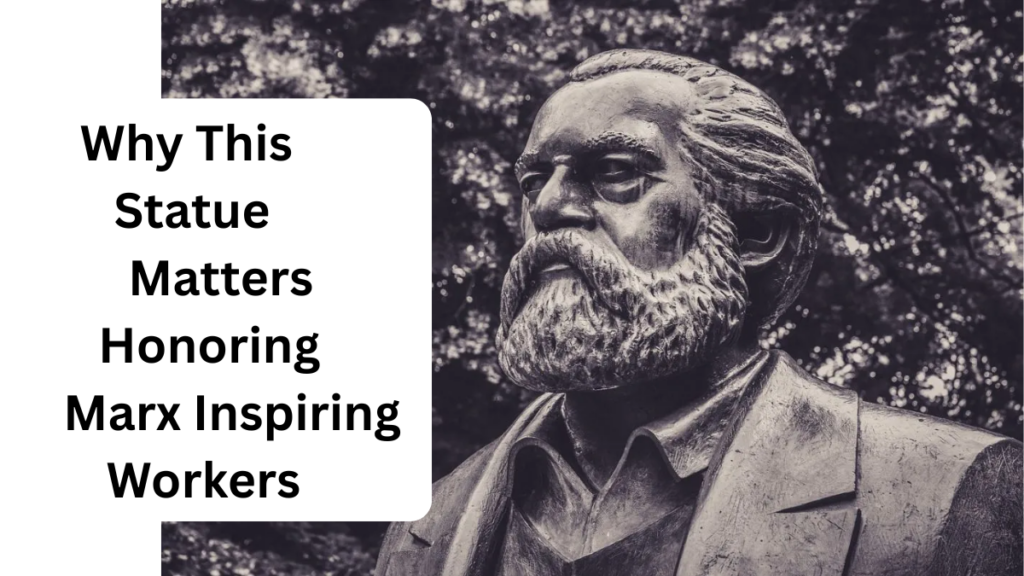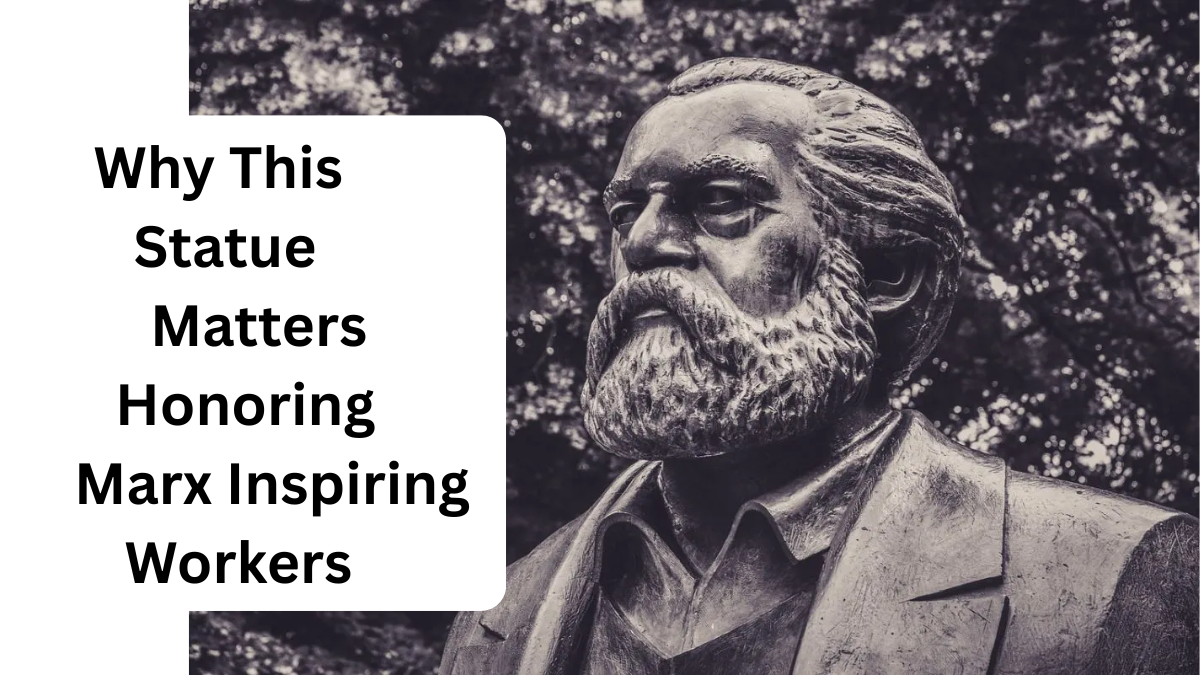In a powerful move that underscores Tamil Nadu’s enduring legacy of social justice and progressive politics, Chief Minister M.K. Stalin has announced that a statue of Karl Marx will soon be erected in Chennai. The declaration was made under Rule 110 in the Tamil Nadu Assembly, symbolizing more than just an installation—it’s a tribute to the revolutionary thinker who reshaped global discourse on labor and equality.

Why This Statue Matters: Honoring Marx, Inspiring Workers
Karl Marx’s philosophy inspired revolutions, empowered the working class, and redefined political thought across continents. By installing his statue in Chennai, the government is not just honoring a global figure—it is reinforcing Tamil Nadu’s deep-rooted connection with social reform and labor activism.
“This is more than a statue—it’s a salute to the spirit of revolution and justice,” CM Stalin emphasized.
Why Chennai? A City Steeped in Socialist History
Chennai has long served as the nerve center of labor rights and socialist ideologies in India. From trade unions to political mobilizations, the city has been the cradle of progressive thought.
Key Reasons for Choosing Chennai:
-
Historic hub of trade union movements
-
Strong presence of leftist ideologies and Dravidian politics
-
Marxist philosophy has influenced decades of Tamil political narrative
A Flashback to 1931: Periyar and the Tamil Marxist Movement
Stalin reminded the Assembly that it was Periyar (E.V. Ramasamy) who first translated The Communist Manifesto into Tamil in 1931. This act introduced Karl Marx’s vision to Tamil audiences and planted the seeds of radical social reform in the region.
“Periyar not only read Marx—he brought Marx to the common people,” Stalin stated.
A United Voice: Support from All Political Corners
The announcement drew praise from across the political spectrum—an unusual yet heartening sight in today’s polarized environment.
Here’s a snapshot of what key political figures had to say:
| Political Leader | Party | Reaction |
|---|---|---|
| P. Shanmugam | CPI(M) | Welcomed the decision, noting it was a long-standing request |
| K. Veeramani | Dravidar Kazhagam | Called it a “significant achievement” of the Dravidian model |
| R. Mutharasan | CPI | Hailed it as a “landmark in history” |
| Dr. S. Ramadoss | PMK | Called Marx a “comrade of labourers” |
Honoring P.K. Mookiah Thevar: A Political Torchbearer
In the same address, CM Stalin announced another major initiative: the construction of a memorial building for P.K. Mookiah Thevar, a stalwart of Tamil Nadu politics, in Usilampatti, Madurai.
Highlights of Thevar’s Political Journey:
| Year | Role | Contribution |
|---|---|---|
| 1952 | MLA – Periyakulam | Started his legislative career |
| 1957–1977 | MLA – Usilampatti (multiple terms) | Long-serving representative |
| 1971 | MP – Ramanathapuram | Took the voice of Tamil Nadu to Parliament |
| Various | Pro-tem Speaker | Administered oaths to newly elected MLAs |
| Ongoing | Advocate for Education | Instrumental in colleges being set up across Tamil Nadu |
| 1970s | Parliamentary Protest | Opposed the Katchatheevu agreement with fierce resolve |
A Rare Moment of Unity in the Assembly
The twin announcements brought a rare and refreshing moment of unity in the Tamil Nadu Assembly. Even the opposition AIADMK welcomed the decision, applauding both the statue for Marx and the memorial for Thevar.
It wasn’t just policy—it was a moment that bridged generations and ideologies, reminding everyone that history, when honored right, can unite even the most divided of houses.
FAQs
1. Why is a statue of Karl Marx being installed in Chennai?
Chennai has a long history of labor rights movements and leftist ideologies. The statue is meant to honor Marx’s contributions, which resonate with Tamil Nadu’s progressive and socialist political legacy.
2. Who was P.K. Mookiah Thevar and why is he being honored?
P.K. Mookiah Thevar was a veteran leader of the All India Forward Bloc. He was deeply involved in state and national politics, fought for educational reforms, and opposed the Katchatheevu agreement in Parliament.
3. What role did Periyar play in Tamil Nadu’s Marxist movement?
Periyar translated The Communist Manifesto into Tamil in 1931, bringing Karl Marx’s revolutionary ideas to the masses and laying the foundation for leftist thought in the state.
4. Is the statue linked to any major political event?
Yes, the announcement was made in conjunction with the 24th National Congress of the Communist Party of India (Marxist) in Madurai, giving it both political and historical significance.
Click here to learn more
